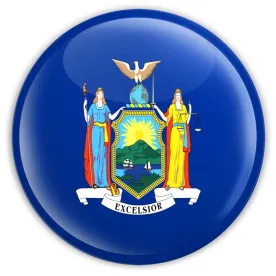On August 12, 2019, New York Governor Andrew Cuomo signed a law which strengthens further the state’s Human Rights Law (NYSHRL). The new legislation further amends anti-harassment laws enacted in 2018, discussed here, expanding the individuals covered and making it easier for covered individuals to state viable harassment claims.
The legislation contains several significant changes, which are highlighted below:
Extension of the Statute of Limitations
Starting August 12, 2020, the statute of limitations for sexual harassment claims filed with the Division of Human Rights will be extended from one year to three years.
Expansion of Coverage and Notice
All employers, regardless of size, with employees in the state are now subject to claims for sexual harassment under the NYSHRL and are required to adopt sexual harassment prevention policies.
Moreover, domestic workers and non-employees, such as independent contractors, subcontractors, vendors, and consultants, will receive the same protections against harassment as employees under the NYSHRL.
Expansion of Covered Discriminatory Conduct
The legislation also expands coverage of the state’s anti-harassment laws to include harassment based on any of the following protected characteristics: age, race, sex, creed, color, national origin, sexual orientation, gender identity or expression, military status, disability, genetic characteristics, familial status, marital status, and domestic violence victim status.
Elimination of the “Severe and Pervasive” Standard
Significantly, the requirement that claimants prove that the purportedly harassing behavior was “severe or pervasive” has been eliminated. Now, a claimant may maintain a claim for harassing conduct under the NYSHRL unless the employer shows that the alleged conduct was what a “reasonable victim” of harassment would consider “petty slights or trivial inconveniences.”
Elimination of the “Faragher/Ellerth” Defense
For two decades, employers have relied upon the “Faragher/Ellerth” affirmative defense to avoid liability for harassment by supervisors. This defense is available if the employer exercised reasonable care to prevent and correct promptly any harassing behavior, and the claimant did not take advantage of the employer’s established complaint procedure to report the conduct. The legislation expressly provides that an employee’s failure to use the employer’s complaint procedure is not a defense to liability in a harassment case.
Prohibition of Non-Disclosure and Mandatory Arbitration Agreements
Extending beyond the restrictions recently imposed by other states, the new law prohibits employers from including non-disclosure provisions in any settlement of discrimination or harassment claims, unless expressly requested by the employee. Also, mandatory arbitration clauses are prohibited in agreements releasing or settling such claims.
A Sea-Change for Employers
This legislation overhauls the state’s anti-harassment laws. Moreover, given the legislation provides that it should be construed liberally and any exceptions or exemptions are “to be construed narrowly in order to maximize deterrence of discriminatory conduct,” employers with employees in New York would do well to consider taking action to comply with the law’s expanded protections and prohibitions, including updating handbooks and policies (among other things). Employers with questions regarding the new law should consult with competent counsel.




 />i
/>i
